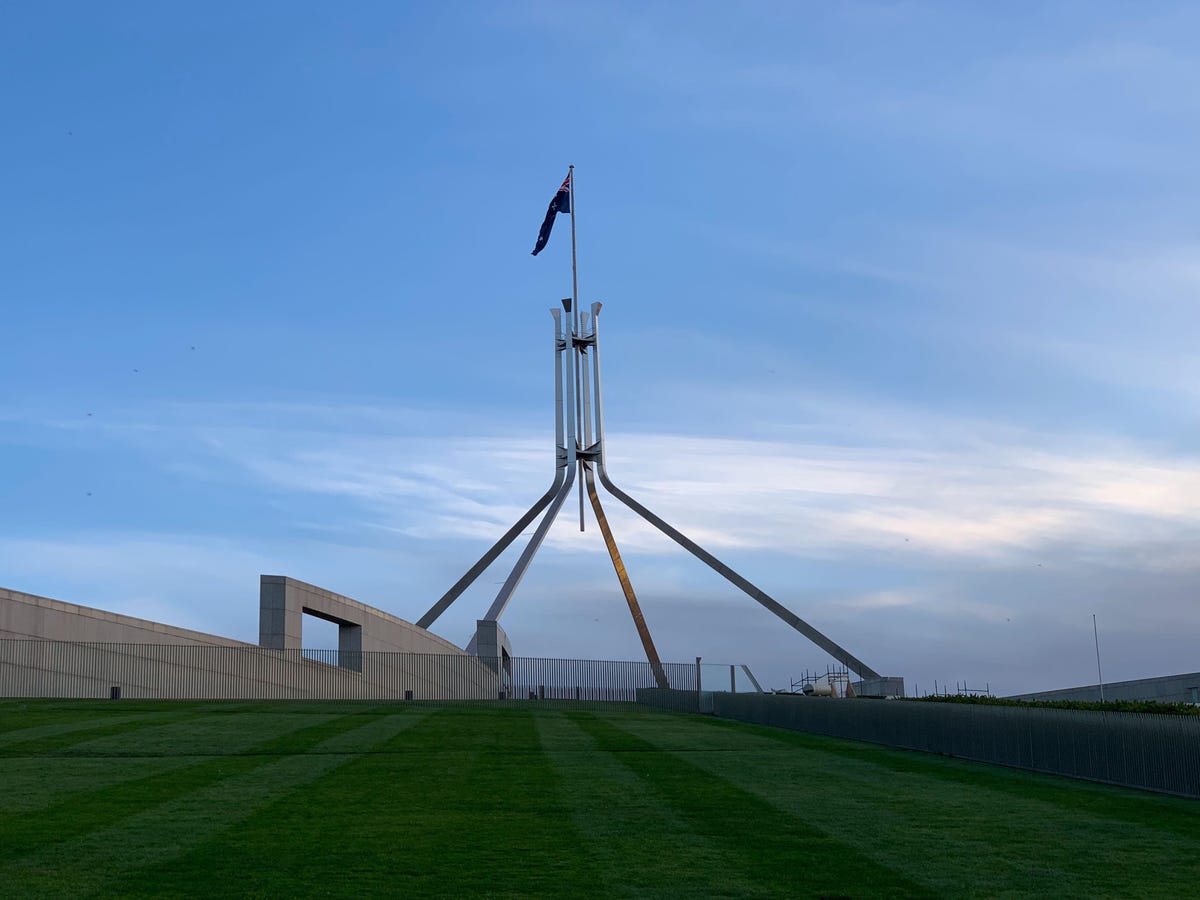
Image: Asha Barbaschow/ZDNet
Australia’s federal government has been pushing for new “anti-trolling legislation” that would see defamation liability shift from owners of social media pages onto social media platforms as it believes the legislative changes would go a long way towards reducing online harm, but the Labor party does not agree.
Labor Senator Kim Carr said his party would block the Bill as it does not actually address online trolling and may exacerbate its effects.
“Evidence from multiple witnesses appearing before this Committee, including the government department that drafted the bill, conclusively establishes that the bill is no such thing,” Labor Senators Kim Carr wrote in a report [PDF] published by the Senate committee tasked with reviewing the laws.
“To the contrary, not only does this Bill fail to provide any practical means to combat the scrouge of online trolling, in providing blanket protection from liability to those hosting defamatory comments on the web pages they own and administer, as well as the extensive legal safe harbor it provides to social media companies hosting defamatory material, the bill is likely to make the problem of online trolling worse.”
Carr’s comments are a minority view, however, with the majority of the Senate standing committee on legal and constitutional affairs saying the anti-trolling Bill should become law so long as it received three amendments.
Among these amendments are for social media page owners to still be liable for a poster’s defamatory material where they knowingly encouraged the publication of a poster’s defamatory material and was notified or aware of the material but still did not remove it promptly.
“The committee is concerned that a social media page owner’s failure to remove a poster’s defamatory material promptly, upon request, gives rise to circumstances where the social media page owner has contributed to the publication of the defamatory material and not just facilitated its publication,” the committee wrote.
The other two recommendations called for amendments to the legislation’s complaints scheme and end-user information disclosure order. Under the current iteration of the anti-trolling Bill, social media platforms have to ensure they can notify an accused poster that they are the subject of a complaint within 72 hours of it being made as well as ask for permission to take down the flagged content, as well as follow other requirements, to avoid being liable for defamation.
Despite having these requirements, social media platforms would not be allowed to take down the content unless they receive permission, however, due to freedom of speech reasons. Addressing the complaint scheme’s operation, the Senate committee has concluded that social media platforms can take down a poster’s allegedly defamatory material, within 72 hours, without the poster’s consent if the poster has not responded to removal requests.
It concluded giving social media platforms this power would not result in freedom of speech being breached.
“While the committee appreciates that the Australian government has been very reluctant to diminish free speech outside of a judicial process, many submitters support a quick and easy ‘take down’ remedy,” the committee wrote in the report.
In regards to the Bill’s establishment of end-user information disclosure orders, which seek to compel social media platforms into unveiling the identity of anonymous users, the Senate committee has recommended that the orders be altered so they cannot be granted if the court is satisfied that the disclosure of relevant contact details or country location data is likely to present a risk to the poster’s safety or any other person, such as in domestic violence situations.
While the committee called for changes to when a person’s identity should be unveiled by the Bill’s powers, social media platforms and online abuse victims alike have said this requirement could create safety issues for vulnerable communities beyond those who are in domestic violence situations.
Carr added that while the amendments do improve the Bill, he said the application of these recommendations would “not come close” to addressing a host of other significant concerns that have been raised. He also echoed concerns made by Australia’s pre-eminent defamation law experts, who have labelled the Bill as “a violent assault on the tort of defamation”.
Notably, the committee’s final recommendations do not call for amendments to other components of the legislation that have received criticism, such as the power to initiate legal proceedings only being available to a privileged few due to the high costs of litigation.
To this end, the Senate committee shared its concern that the legislation could give rise to major access to justice issues, but it remained hesitant in fully supporting the development of alternate, low-cost forms of online defamation dispute resolution.
Social media platforms have also complained that the Bill would place an “unprecedented level” of defamation risk on social media platforms as it seeks to remove the defence of innocent dissemination.
The Senate committee appears to have not been convinced by these arguments, referring to findings from a recent federal social media probe that expressed concern over how social media platforms have failed to take responsibility for, and adequately protect Australians from online harm.
Liberal Senator and Attorney-General Michaelia Cash previously said the anti-trolling legislation was among the primary items, alongside the recently wrapped up federal social media probe, that the Coalition wanted to get pushed out before this year’s federal election.
Carr noted the Bill is unlikely to pass before the federal election, however, as there is only expected to be three sitting days before the election is called.
Related Coverage
Stay connected with us on social media platform for instant update click here to join our Twitter, & Facebook
We are now on Telegram. Click here to join our channel (@TechiUpdate) and stay updated with the latest Technology headlines.
For all the latest Technology News Click Here
For the latest news and updates, follow us on Google News.
